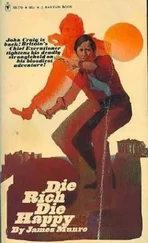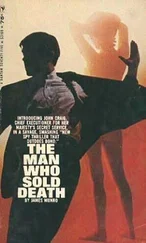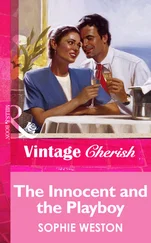James Munro - The Innocent Bystanders
Здесь есть возможность читать онлайн «James Munro - The Innocent Bystanders» весь текст электронной книги совершенно бесплатно (целиком полную версию без сокращений). В некоторых случаях можно слушать аудио, скачать через торрент в формате fb2 и присутствует краткое содержание. Жанр: Старинная литература, на английском языке. Описание произведения, (предисловие) а так же отзывы посетителей доступны на портале библиотеки ЛибКат.
- Название:The Innocent Bystanders
- Автор:
- Жанр:
- Год:неизвестен
- ISBN:нет данных
- Рейтинг книги:4 / 5. Голосов: 1
-
Избранное:Добавить в избранное
- Отзывы:
-
Ваша оценка:
- 80
- 1
- 2
- 3
- 4
- 5
The Innocent Bystanders: краткое содержание, описание и аннотация
Предлагаем к чтению аннотацию, описание, краткое содержание или предисловие (зависит от того, что написал сам автор книги «The Innocent Bystanders»). Если вы не нашли необходимую информацию о книге — напишите в комментариях, мы постараемся отыскать её.
The Innocent Bystanders — читать онлайн бесплатно полную книгу (весь текст) целиком
Ниже представлен текст книги, разбитый по страницам. Система сохранения места последней прочитанной страницы, позволяет с удобством читать онлайн бесплатно книгу «The Innocent Bystanders», без необходимости каждый раз заново искать на чём Вы остановились. Поставьте закладку, и сможете в любой момент перейти на страницу, на которой закончили чтение.
Интервал:
Закладка:
CHAPTER 8
They drove through Kirikkale, then on to Kayseri, climbing the foothills of the Taurus Mountains. The road was bad now, the pavement giving out for long stretches, but the Mercedes took all it was given, and came back for more. They passed hamlets of mud and stone, tiny fields wherever there was water, and where there was not— scrubland, goats, and sheep. Gas stations were a rarity, and whenever he passed one Craig filled up the tank, paying in Turkish lire this time.
Once a police car followed them, then shot past them, waving them down. The girl was frightened, but Craig was unhurried, and wound down his window as the two policemen came up to him, thin and hard and dark as gypsies. One of them spoke a little French, and asked them if they were lost. Craig said they were not. They were going to Iskenderun to consider the possibility of making a film there. The policeman was impressed, and gabbled to the other man in Turkish, then asked if Craig had ever met Brigitte Bardot, and Craig said no, but he'd met a man who had. The policeman asked if they were American, and Craig said they were. His partner then took a deep breath and said, "Hey, Joe. Gimme some whisky and a broad." Craig applauded then, and scowled at Miriam till she applauded too. The French-speaking policeman then explained that his partner had fought in Korea, Craig handed round Chesterfields and they were free to go.
They drove on sedately to the next bend, then Craig put his foot down. "My God," said the girl.
"Take it easy. They were bored and they wanted cigarettes. When trouble comes, it won't be wearing a uniform."
It came at Volukari, eighty miles farther on. Craig had stopped yet again for gas and the girl had gone into the fly-festooned shack beyond it that said cafe. He sat and waited, looking at the town that seemed to be in training for its next famine. Tired houses, unpaved streets, people who owned nothing but time, but in time they were millionaires. The women, he supposed, were bored at home; it was a crowd of men and boys who watched his tank fill up; the big excitement of the day. And then they had another excitement: the peremptory blast of a horn, the squeal of tires that longed for tarmac and met only dirt, then an E-type Jaguar went by, and the crowd exploded into comment. Four foreigners in one day. If things kept up at this rate they'd have to organize a festival. Miriam came back, and the crowd settled down to watch again, careful not to miss a single detail, the flick of her skirts, the glimpse of knee before the door closed. Craig's mind was elsewhere; he was thinking of the E-type. The man driving it was Andrew Royce, the girl beside him Joanna Benson.
"I've just seen two more film producers," he said, "and we're both after the same property."
He had no doubt that Royce and Benson had seen him.
They drove on into the evening, through Iskenderun, on past a little beach where somebody optimistic had built a little white hotel, with beach umbrellas and fairy lights and a couple of discouraged palm trees like thin old ladies. It seemed like a good place to stop if you drove an E-type, but there was no sign of it. Instead they picked up an elderly Fiat truck that rattled along behind them, then dropped slowly back as they drove round the bay and came at last to Kutsk, a gaggle of fishermen's huts huddled round a mosque, with one larger building, just as dirty, just as decrepit as the others, coffeeshop, bar, and restaurant combined. With any luck, it would be the hotel, too.
"Welcome to the Kutsk Hilton," said Craig.
He got out and stretched stiffly, near exhaustion, not daring to yield to it. The E-type could cover a hell of a lot of country, even this country. He took the girl's arm and led her inside the coffeeshop.
She found herself in a world of men. In Turkey, she realized, a man's business was to drink coffee; a woman's was to make it. The silence that greeted her was absolute, and she moved closer to Craig. The room was long and narrow, with deal tables and chairs. One unshaded light bulb competed unsuccessfully with cigarette smoke and flies. The room smelled—had smelled for twenty years— of cigarette smoke, sweat, and coffee. It reeked of coffee. The proprietor, a chunky man who smelled like his property, came up and stood in front of them without enthusiasm. Around him his customers looked on, like men pleased with themselves at being in on something good. Craig tried him in Arabic, French, and Greek, with no reaction. In the end he resorted to pantomime, and the patron nodded his understanding and relaxed enough to jerk a thumb at a table. The villagers relaxed then; the show was over. Someone switched on a radio, and they began at once to shout over it as a woman brought plates of fish stew, bread, and water to Craig's table. The girl looked at it dubiously.
"Eat," said Craig. "It'll be good."
It was, and Miriam discovered how hungry she was. Craig ate left-handed, and watched the door. When the stew was gone, the woman brought coffee, and with it an aging man who smelled of fish walked up to Craig and bowed, then began making noises with his mouth. At first the girl thought he was singing, then realized, incredulously, that he was speaking English, but English of a kind she had never heard before. Craig pulled over a chair and signed to the woman to bring more coffee. The aging man went on talking English with a combined Turkish and Australian accent. He had fought in Arabia in the First World War and been captured by Australian Cavalry. Was Craig an American, he asked, and when Craig said he was English he was delighted, or so Craig deduced. "Good on you, cobber" were the words he used. He went on to make it clear that, what trouble Russia hadn't made, America had, and asked how he could serve Craig. A room? Of course. His son owned this appalling coffeehouse, but it had one room for Craig and his wife. A good room. Almost an English room.
He led them to it. It was behind the coffee room and the racket was appalling, but it was clean. Craig remembered where he was, and made a long speech in praise of the room. The aging man was delighted.
"You know your manners, sport. My oath you do," he said, then bowed again. "My name is Omar."
"John Craig."
Still remembering his manners, Craig made no move to introduce Miriam as his wife or anything else, and Omar, remembering his, didn't look at her.
"Sorry I wasn't around when you came in," Omar said. "I was sleeping." He yawned. "You come far?"
"Ankara," said Craig, and Omar's eyes widened. Craig might have said the moon.
"You have business here?" he asked.
"Maybe," said Craig. "Perhaps we can talk tomorrow?"
"Too right," said Omar, and turned to the door.
"D'you get many English here?" Craig asked.
The aging man giggled.
"Before today I hadn't set eyes on a Pommy for fifty years," he said, and left them.
Craig locked the door. When he turned round she was removing her dress, but her eyes were angry.
"Why do I have to be British?" she said.
"You don't like us?"
Again the blush came. "Oh you," she said, then the anger came back. "I love my country."
Americans, he thought. With their passion for precision. Love is a pure word: color it red, white, and blue. When would they get away from primary colors?
"Usually I'm quite fond of the old place, sometimes I adore it, sometimes I absolutely loathe it." Was it possible to be as ambivalent as that to a fact as enormous as America?
"If you love it you want to help it," he said. "And you can help it best by letting Omar think you're British."
"You're treating me like a child again."
"No—an innocent American," he said. "I'm a wise European."
"And decadent too?" "You tell me," said Craig.
"Henry James would have loved this one," said Miriam. "Who?"
Читать дальшеИнтервал:
Закладка:
Похожие книги на «The Innocent Bystanders»
Представляем Вашему вниманию похожие книги на «The Innocent Bystanders» списком для выбора. Мы отобрали схожую по названию и смыслу литературу в надежде предоставить читателям больше вариантов отыскать новые, интересные, ещё непрочитанные произведения.
Обсуждение, отзывы о книге «The Innocent Bystanders» и просто собственные мнения читателей. Оставьте ваши комментарии, напишите, что Вы думаете о произведении, его смысле или главных героях. Укажите что конкретно понравилось, а что нет, и почему Вы так считаете.












